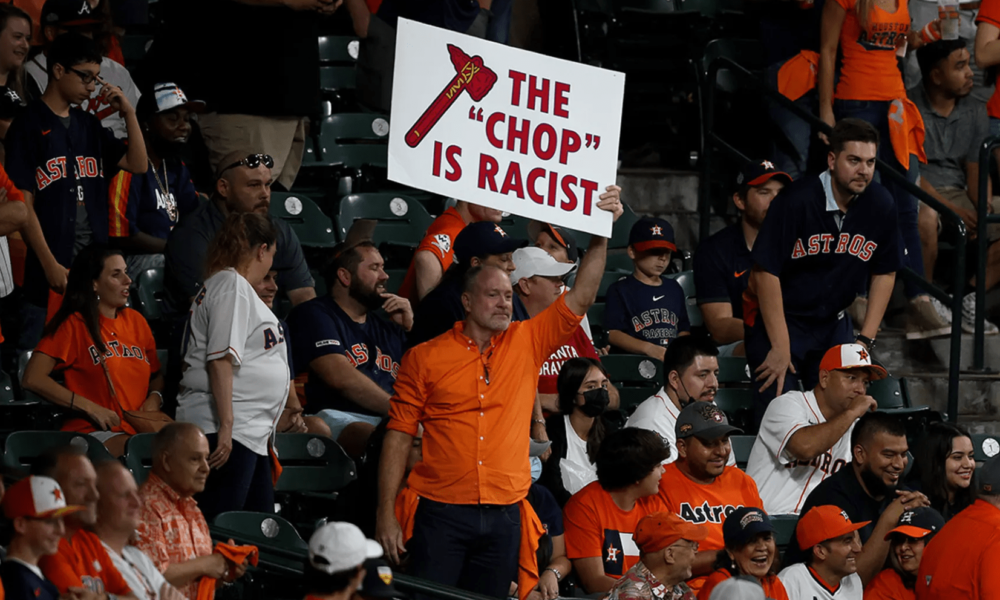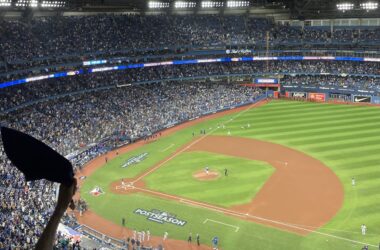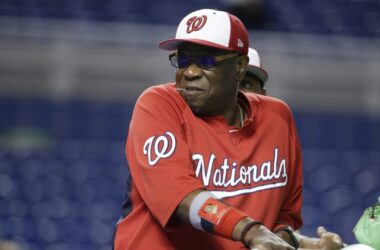The transition away from dehumanizing caricatures of Indigenous peoples within the sports world has been marked by many teams dropping their blatantly racist names. After years of activism, McGill changed the moniker of their men’s varsity teams to the “Redbirds” in 2019. The Washington Football Team eliminated their degrading nickname in 2020 and the Cleveland Guardians followed suit in 2021.
Throughout their successful bid for a World Series ring in 2021, the Atlanta “Braves” and their notorious “Tomahawk chop” received rightful scrutiny while being placed in the spotlight. As the audio cue for the “chop” rang throughout Truist Park, the TBS channel panned out to show Atlanta fans in cartoonish regalia and headdresses chanting a “war-cry” while chopping their arms back and forth. The refusal of Atlanta to move away from the “chop,” combined with Major League Baseball (MLB) and TBS’s encouragement of the cheer, has left many fans perplexed as to why MLB would endorse such an objectionable act.
Racism within the Atlanta “Braves” organization traces back to the team’s sale in 1912 to James Gaffney. Gaffney was an alderman for Tammany Hall—a New York City political organization named after Chief Tamanend of Lenape Nation. Tammany Hall referred to its members as the “Braves,” a term associated with Indigenous warriors.
In 1991, when the “chop” was adopted from Florida State University, a number of Indigenous groups protested outside the Metrodome, criticizing the chant and hand motion for making reference to scalping, a violent practice stereotypically associated with Indigenous peoples that is, in reality, practiced predominantly by white settlers who were institutionally encouraged and rewarded for this horrifying practice.
When partnered with Atlanta’s legacy of racist caricatures and the “Braves” name, the “chop” becomes a harmful misrepresentation of Indigenous peoples that marginalizes the Indigenous experience. As an accepted part of baseball fandom, the “chop” and its associated “war-cry” instill settler-colonial stereotypes of the “savage Indian” into mainstream baseball culture.
The National Congress of American Indians (NCAI) has also been unwavering in its calls for MLB, TBS, and FOX Broadcasting Company to refrain from showing the “chop.”
In a conversation with the Post Dispatch, Ryan Helsley, a pitcher for St. Louis Cardinals and a member of the Cherokee Nation, described his experiences playing at Truist Park as disappointing and disrespectful.
“It depicts them in this kind of caveman-type people way who aren’t intellectual,” Helsley said. “I don’t see why professional teams are so far behind on that.”
In response to this comment, Atlanta decided to stop distributing red foam tomahawks to fans, and to refrain from playing the audio cue—but only when Helsley was in the park.
In an interview with The McGill Tribune, Yann Allard-Tremblay, assistant professor in McGill’s Department of Political Science and a member of the Huron-Wendat First Nation, expressed his disappointment with Atlanta’s response.
“You can acknowledge that it is wrong but [the MLB] is still in a position where it doesn’t have to change,” Allard-Tremblay said. “[They’re] consolidating [their] dominance. It says a lot about how much care is taken to the relationship with Indigenous peoples. As it is presented to me, Ryan Helsley seems to be saying that there is something wrong, that he is not comfortable, and the response is, ‘well local Indigenous people are fine with it.’”
If MLB commissioner Rob Manfred is going to continue to make weak excuses for his ongoing support of the name and its associated chant, Atlanta needs to take a name change into their own hands. Circulating petitions have suggested the Atlanta Hammers as a tribute to former Atlanta baseball star, Hammerin’ Hank Aaron.
“There is often an attachment to power,” Allard-Tremblay said. “Being questioned about the power you exercise is often something that will lead to no answer. You see that in so many social dynamics of people who have entitlement and do not want to lose their entitlement. I am sure that is present here [with the MLB and Atlanta].”
As a team that has held six different names in three different cities, it is clear that Atlanta is not resistant to a name change or rebrand of the team. What they are resisting is the transition away from the exploitative representation of Indigenous peoples that continues to be profitable for Major League Baseball.










Well said
Pingback: We're talking about Fightins!: Inside the Philadelphia Phillies improbable World Series run - The McGill Tribune